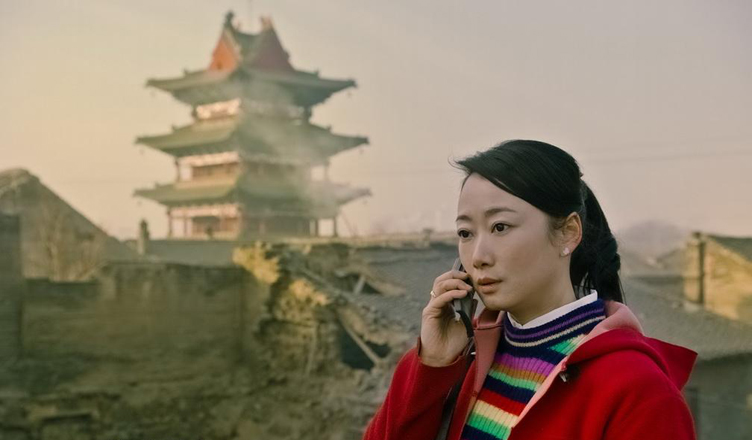Mountains May Depart

7th October 2015 6.00pm at BFI Southbank
8th October 2015 3.15pm at Vue West End
At just over two hours long, Mountains May Depart is – on paper – a sprawling epic about ordinary people doing ordinary things in times of hardship. It’s a formula that’s graced the narrative world many times throughout history, and will surely continue to evolve in years to come. However, refreshingly, Mountains May Depart surprises in avoiding tedium through its unusual plot structure: the film follows the exploits of Tao and her two rival would-be lovers Jinsheng and Liangzi, first in 1999, then in 2014, and finally in 2025. In this way, before any one setting or situation can stagnate, a new context is presented for the audience to adjust to. It’s not a new technique, but here it is used masterfully to keep things moving.
Binding the three sections together is the incredible talent of lead actress Tao Zhao, who is capable of bringing both endearing exuberance and extremely poignant sadness to the screen. From start to finish, she presents her character in a highly accessible and memorable way, to the extent that, though Tao is largely absent from the final act, her sheer presence punctuates those events as well. Although the rest of the cast also turns into strong performances, it is Tao Zhao who dominates this film, and still manages to leave the audience wanting more.
Aesthetically, the film gets very creative in differentiating each time period in terms of colour and decor. The past, naturally sepia-toned, feels like a world of old things, dust everywhere and not a smartphone in sight, while the near future is bright and crisply vibrant, with high-tech gadgetry at every turn. Even the present day sections are made more intriguing, for western audiences at least, by their setting in the rarely-presented streets of modern China. There’s always something interesting to look at, even if it’s easy to guess where the plot is going.
If there’s one slight flaw in Mountains May Depart, it’s that it doesn’t often make clear its intentions. Much like the Wachowskis’ Cloud Atlas, probably the closest Hollywood analogue, the film presents these relatively ordinary stories with such grandeur, but the point of compiling them together isn’t immediately evident. Ultimately, whether the audience puzzles over the film’s meaning or appreciates it at face value, there’s plenty else to enjoy, and Tao Zhao’s performance alone is worth the price of admission.
James Ager
Mountains May Depart does not have a UK release date yet. This is part of the Journey competition in the 59th London Film Festival.
For further information about the 59th London Film Festival visit here, and for more of our coverage visit here.
Watch the trailer for Mountains May Depart here:
https://www.youtube.com/watch?v=YcIZOH31qCg

























Facebook
Twitter
Instagram
YouTube
RSS